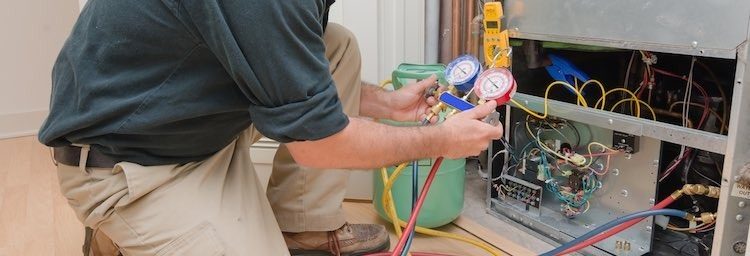Air conditioners are probably most people’s favorite feature about their home, especially living in Florida. It’s something most individuals take for granted. When you ask them what they love most about where they live, the likely answers are location, square footage, or school district. But wait until there’s a power outage or the AC breaks down and you’ll hear a different answer.
If you’re old enough to have been around the block a few times, you’ve likely noticed that modern units are substantially different from the air conditioners manufactured decades ago. The main reason is energy efficiency. We all want our homes to become cooler, faster, while at the same time keeping energy costs down.
However, a lot of the parts remain the same, they’re just made in a more efficient way. But what about refrigerant? Has that changed during the years? And if you replace your air conditioner, should you stop using traditional refrigerant?
What is Refrigerant?
Air conditioners absorb the warm air from inside your home or business and cool it before releasing it back out through your air vents. The component that causes the air to cool is a gas called refrigerant. It’s pretty much like the coolant in cars. It’s also used in refrigeration. See a trend here? The name comes from the word “refrigerate”, which means “to make or keep at a cold temperature.”
What’s Wrong With R22 Refrigerant?
Air conditioners that were manufactured before January 1, 2010 use a refrigerant known as R22, which is also known as Freon. In efforts to keep air conditioners “greener”, the “Environmental Protection Agency” amended the “Clean Air Act“, requiring that new AC units must use environmentally friendly refrigerant. This is especially important since R-22 has ozone-depleting agents.
Since there are still plenty of homes with a working air conditioner that was installed before that date, the new law also forbid the sale of R22 to anyone other than an EPA-certified HVAC technician.
If you’re not sure what type of refrigerant your AC uses, you can verify by checking the nameplate. In a nutshell, it’s not that you should replace R22 when getting a new air conditioner. You’re required by Federal law to do so.
Additional Facts About Air Conditioning Refrigerant
It’s important to know that besides refrigerant being noxious to the environment, even with the new regulations, breathing in refrigerant of any kind can be poisonous. So pay attention to signs of a refrigerant leak to keep yourself and your family safe:
– Hissing sound
– AC is not cooling
– Frost forming on the condenser unit (the box sitting outside your home)
– Higher energy bills
The best way to prevent refrigerant leaks is to schedule routine maintenance checks. Doing so will allow technicians to spot possible issues and resolve them before they become a problem.
Contact Colman Heating and Air Brevard County for an AC Replacement
At Colman, we can assist you with any of your air conditioning issues. We also have a 24/7 AC emergency line. Call us if you need assistance ASAP, to schedule routine HVAC maintenance, or for repairs or installations.
24-HR Emergency Service (321) 269-4565








